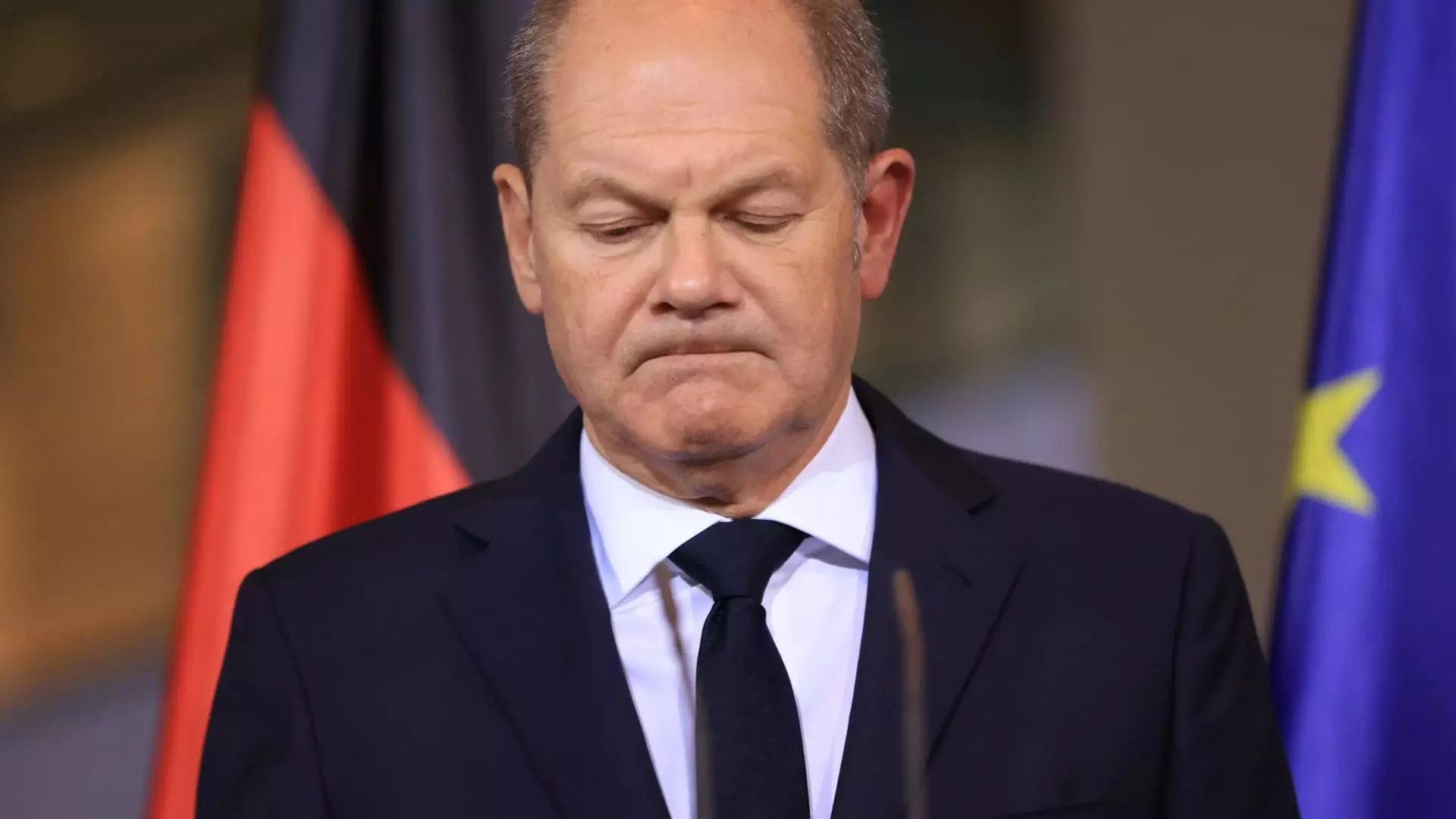The unexpected election of Donald Trump as the President of the United States has raised significant concerns regarding the future of the German economy. As Europe’s powerhouse, Germany’s economic stability is intricately tied to its global trade relationships, particularly with the U.S., which has recently emerged as one of its most crucial trading partners. With recent data indicating a fragile recovery and a looming risk of recession, the combination of political instability and potential changes in trade policy under Trump paints a challenging picture for Germany’s economic prospects.
Germany’s economy recently demonstrated a slight resilience by narrowly avoiding a technical recession, as evidenced by a reported GDP growth of 0.2% in the third quarter, following a 0.3% contraction in the previous quarter. Nonetheless, the German government has lowered its expectations and now anticipates overall economic contraction for the year. This dim outlook is further supported by various economic indicators, including a composite purchasing managers’ index (PMI) that, despite a minor uptick in October, reflects ongoing contraction within key sectors.
Economic experts are expressing heightened concern that Trump’s leadership could exacerbate Germany’s existing challenges. Moritz Schularick, president of the Kiel Institute for the World Economy, voiced this concern, highlighting the dual threat of domestic structural issues and international trade instability. Schularick’s pessimistic assessment underscores fears that Trump’s aggressive economic policies will exert downward pressure on growth not only in Germany but throughout Europe.
Germany’s economy relies heavily on exports, and Trump’s potential implementation of blanket tariffs poses a serious threat. Reports from Germany’s statistics office, Destatis, show that the U.S. has progressively solidified its position as a vital trading partner, overtaking China in the first half of 2023. Currently, nearly 10% of German exports, valued significantly in various sectors, are destined for the U.S. market.
The ifo Institute for Economic Research has warned that Trump’s proposed tariffs—ranging from 10% to 20%—on imports would lead to catastrophic economic impacts. Their analysis suggests that German exports to the U.S. could plummet by approximately 15%, resulting in estimated losses of about €33 billion, fundamentally destabilizing sectors such as automobile manufacturing and chemicals, which are pillars of Germany’s industrial landscape.
In light of these threats, experts argue that Germany and the European Union must consider tactical measures to mitigate potential economic downturns. Lisandra Flach from the ifo Center for International Economics emphasizes the necessity for deeper integration within the EU’s internal market and the formulation of credible retaliatory strategies against U.S. policies. This creates a pressing need for Germany to shore up its defenses against any economic isolationism that may arise from the U.S.
The call for preemptive actions comes amidst a backdrop of political volatility in Germany, further complicating the situation. Chancellor Olaf Scholz’s recent dismissal of Finance Minister Christian Lindner indicates the current fragmentation within the German government, raising questions about its effectiveness in responding to impending economic challenges. Simultaneously, senior political figures, including Scholz, have extended congratulations to Trump, while still asserting the need for Germany to maintain strong partnerships.
The German government is recognizing the urgency of diplomatic efforts to address potential trade conflicts that may arise under Trump’s administration. Lindner has previously highlighted the importance of maintaining open communication channels with the U.S. to avoid escalating tensions. There is a collective understanding among German leaders that engaging with the new administration is imperative for safeguarding Germany’s economic interests.
Looking ahead, Germany finds itself at a significant crossroads. As it grapples with internal political disruptions and external economic threats, the nation must navigate uncharted waters. The combination of Trump’s election and Germany’s precarious economic standing demands immediate attention and strategic planning. Germany’s ability to adapt to these challenges and strengthen its global partnerships could ultimately define its economic trajectory in the years to come.
The intersection of U.S. political dynamics and German economic realities indicates a moment of potential upheaval. Critical economic policy shifts anticipated under Trump’s leadership could exacerbate Germany’s already delicate situation, necessitating robust responses both at a national and EU level. The coming months will be pivotal for Germany as it seeks to reestablish stability and growth in a rapidly changing geopolitical landscape.

